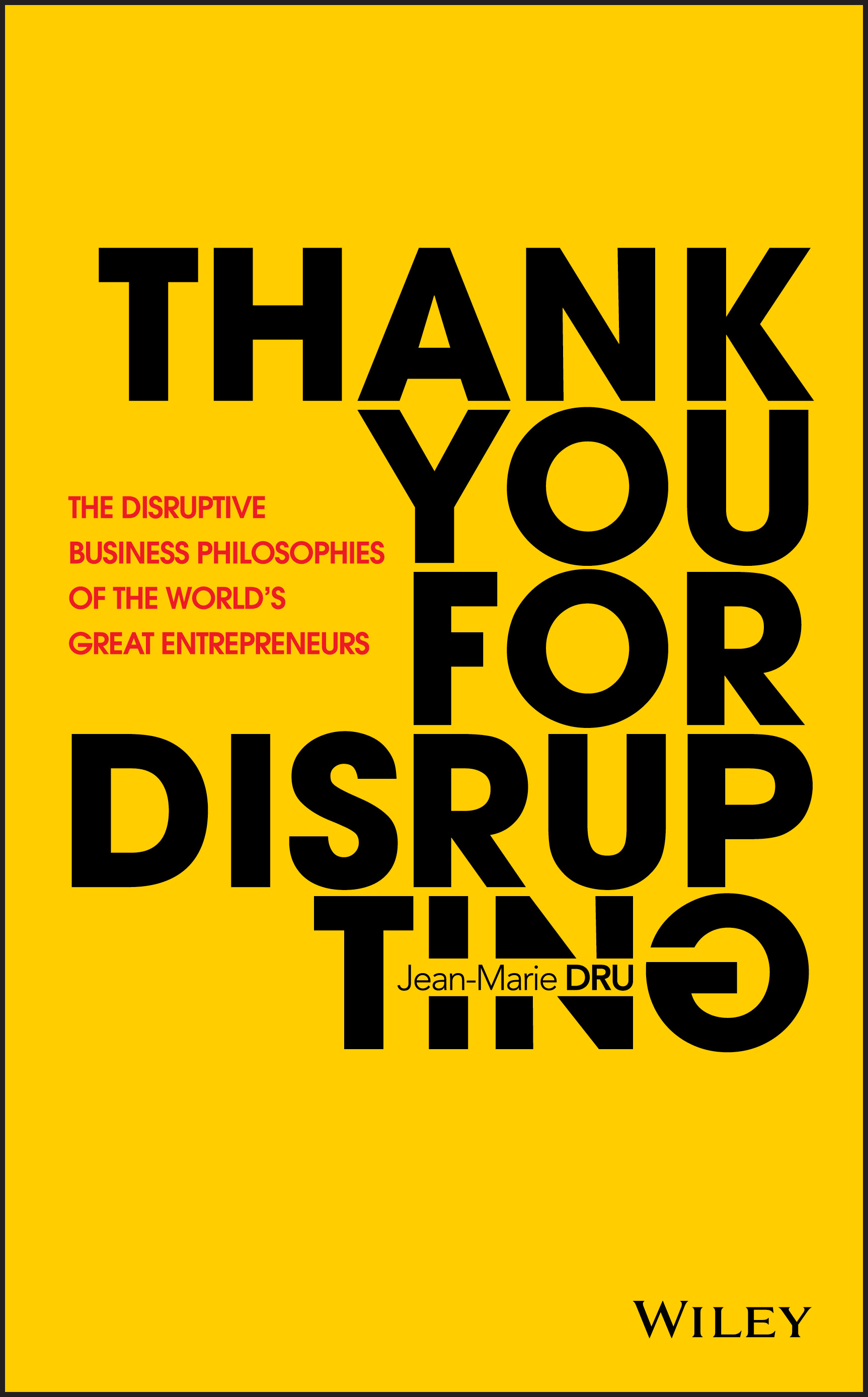The first element is vision. At TBWA, we define ourselves as The Disruption® Company. Those not familiar with TBWA’s history and with its role in shaping the word disruption might be a bit surprised. They should know, however, that using the word disruption in a business context originated with our agency. We were also the first to give the term a positive connotation. Many might consider disruption to have become an overused, even somewhat generic concept. But as I stated previously, what makes a vision great is not so much its originality as its authenticity. TBWA has been cultivating this vision for almost 30 years.
Every day we must try to live up to the high expectations we have set with regard to our company’s positioning. To do so, we must think disruptively, create disruptively, and act disruptively in everything we do. We must try to avoid anything that leads to linear or incremental growth. We seek disruption. Consider now values. Annual reports are full of the values companies espouse. From one company to another, we frequently come across the same words peppered throughout their documents such as integrity, adaptability, frugality, responsibility, accountability, competency, sustainability, flexibility, utility, and transparency without forgetting innovative spirit and sense of leadership. These values are not original, but what matters is how present they are in the heart of a company. TBWA’s culture also relies on a set of values. They are described in three words that are in themselves not necessarily distinctive: creativity, curiosity, and diversity. Of our three values, creativity comes first. Every single day we are looking for ideas that are fresh, smart, and simple. Fresh because so few ideas manage to emerge from the immense noise of global communication. Most have become inaudible, invisible.
Smart because we should never underestimate our audience. No one ever complains about an ad being too smart. Simple because, as our Apple campaigns have always demonstrated, the simpler, the more impactful. Ideas do not come out of nowhere. They come from an understanding of the cultures we live in and of the audiences with whom we are talking. This is why curiosity is our second value. We want and expect our people to have hungry minds. And we do a lot to help feed them. For instance, every day of the week, we produce a different three-minute video describing particular micro-trends and what’s becoming important in emerging crowd cultures. This provides great food for thought. The goal is to help our people find ideas that, as our chief executive officer, Troy Ruhanen, says, “locate and involve brands in modern culture.” Our third value is diversity. “Embrace diversity, it will hug you back,” believes John Hunt, our worldwide creative director. While gender diversity is important to us, at TBWA diversity goes far beyond the executive positions occupied by women. In our organization, six of our largest offices—Los Angeles, New York, Toronto, Shanghai, London, and Paris—are managed by women. While having a diverse staff at all levels of an organization is important, we also take diversity to mean open- ness to others. We see the value in cultural blending. Each of our local offices is endowed with its own strong local character, and this enriches our work. It’s no coincidence that our Los Angeles office was chosen by Steve Jobs and our Johannesburg office by Nelson Mandela. We know that none of us individually is better than all of us together. Troy Ruhanen said some time ago, “I need Paris to come into New York. I need Turkey to come into China. I need L.A. to come into Australia. That’s how we’ve got to work.”
This leads us to our own business practices. The Harvard Business Review identified practices as one of the six components that form company cultures. The Disruption Days we conduct with our clients are the most concrete manifestations of our culture. Each of these events brings together around 30 people, half from the client side, and half from the agency. Over one or two days, they follow a precise sequence of activities based on a series of rigorous exercises. Our network has 270 agencies around the world and each one has held at least five Disruption Days per year, meaning we will have organized at least 10,000 of these events so far. We estimate that more than 100,000 of our clients’ employees have participated in them, from China to Brazil, from South Africa to Finland. It would be difficult to imagine a practice going further in bringing a company’s culture to life.

Excerpted from Thank You For Disrupting: The Disruptive Business Philosophies of The World’s Great Entrepreneurs by Jean-Marie Dru, with permission from the author and publisher.
Follow us here and subscribe here for all the latest news on how you can keep Thriving.
Stay up to date or catch-up on all our podcasts with Arianna Huffington here.


